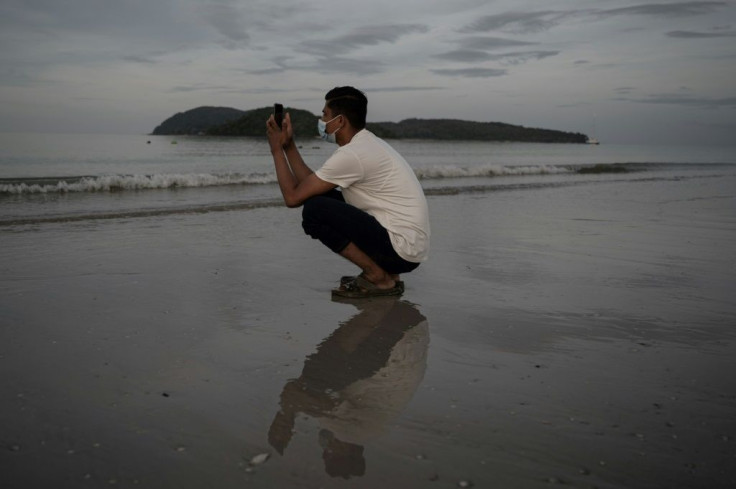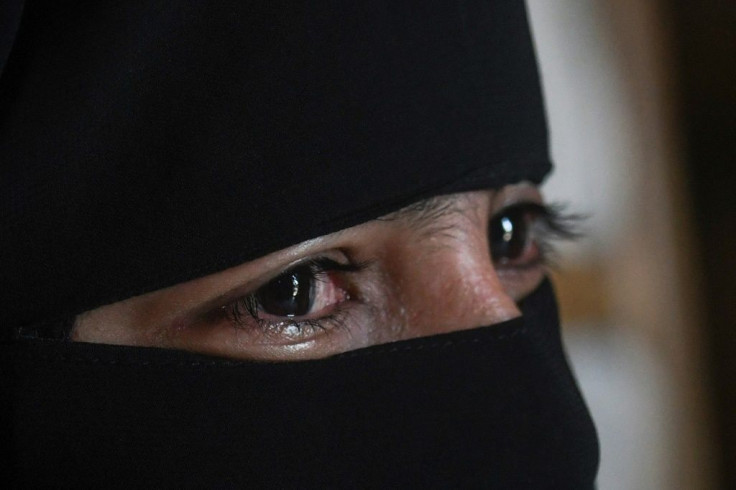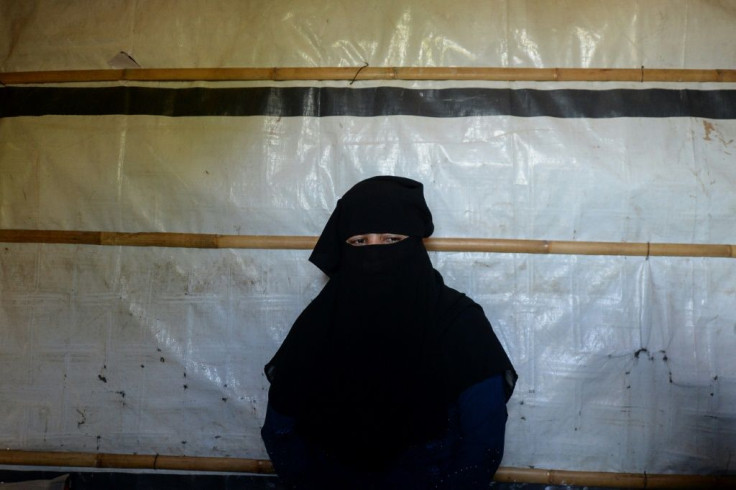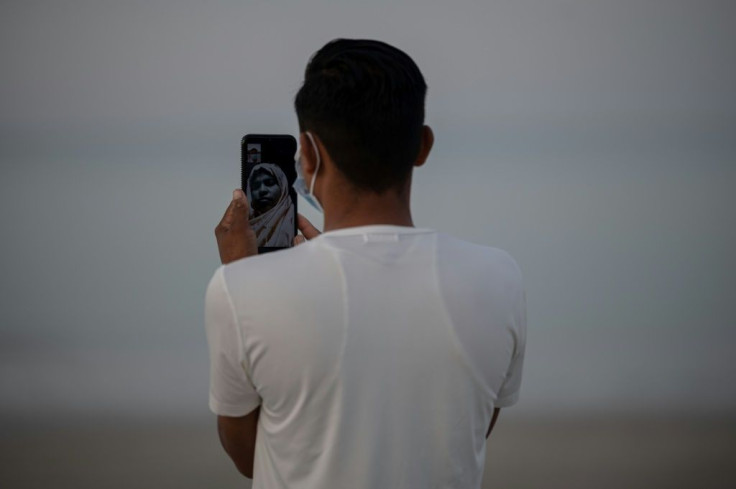Video Chat Only Hope For Divided Rohingya Couple
The human traffickers told Julekha Begum it would take less than a week to smuggle her to Malaysia to meet the husband she barely knows.
Instead she spent two months marooned at sea in the hold of a fishing boat with 500 others. In that time, she said traffickers beat her sister to death and threw countless bodies into the sea.
Eventually she was forced to return to a sprawling refugee camp in Bangladesh alongside a million other members of the stateless Rohingya group.
The video-call app they used to get married in 2017 remains the only means of contact for Julekha and her husband, Abdu Hamid, who lives on Malaysia's Langkawi island, a common landing point for Rohingya boats.

"I am waiting for the day I will meet my husband," Begum told AFP as she broke down in tears.
"We've been married three years but we haven't once touched."
Begum, her mother and sister were among hundreds of thousands of Rohingya who fled mostly Buddhist Myanmar to neighbouring Bangladesh in 2017 to escape a brutal military crackdown.
She was married to Hamid shortly after via imo, a video-call app popular in Bangladesh.

Begum and Hamid knew each other as children and, as is the custom in Rohingya society, their match was arranged by their parents.
After two years of staying in touch via video-calls, Hamid managed to arrange for Begum and her sister to take a boat.
Thousands of Rohingya try to make the perilous journey each year, putting themselves at the mercy of ruthless people smugglers and corrupt authorities in multiple countries.
The voyage that Begum embarked upon in February was a disaster.
As well as her sister, dozens of people died as food ran low and the boat was unable to land, according to Begum and other passengers AFP spoke with as part of a months-long investigation into the human trafficking network.

"We starved, many died and the bodies were thrown into the sea," Begum said, as she recounted the horror of her sister's death.
"The smuggler mercilessly beat her with a leather belt. I couldn't do anything but cry and curse."

Rohingya have flocked to Malaysia for many years, mostly by boat but also overland, fleeing Myanmar where they have been forced from their homes and seen their villages razed.
The UN says the Myanmar military's crackdown on Rohingya has amounted to genocide.
Hamid escaped Myanmar about seven years ago, travelling first by boat to Thailand and then crossing on foot into Malaysia.
He initially worked on a construction site before landing a job in a hotel on Langkawi, a popular holiday resort island.
But, while tourists enjoy themselves, Hamid thinks about his wife.
"Sometimes when I am in a deep sleep, I imagine my wife is asleep next to me, I can feel her warmth," Hamid told AFP.
AFP used a pseudonym to protect his identity, as Rohingya in Malaysia have faced mounting hostility amid the pandemic.
Video calls offer some comfort for Hamid and Begum, but their conversations rarely escape the shadows of their misery.
"Often we express our love over the phone. Sometimes we laugh about things but often we cry because we cannot live like a normal husband and wife," Hamid said.
While they cannot be together, the marriage at least provides some financial help for Begum's family as Hamid usually sends them between 200 and 400 Malaysian ringgit ($50 to $100) a month.
And the couple are not ready to give up on their relationship.
"My dream is still to bring my wife to Malaysia," Hamid said.
In Bangladesh, Begum echoed her husband: "I must reach him someday".
However Begum's only options to reach Malaysia now appear to be a lengthy journey overland or getting a counterfeit Bangladeshi passport to fly -- which is prohibitively expensive.
After this year's horrors, Begum said she will not return to the sea.
"I am too traumatised to get on another boat."
© Copyright AFP {{Year}}. All rights reserved.



















